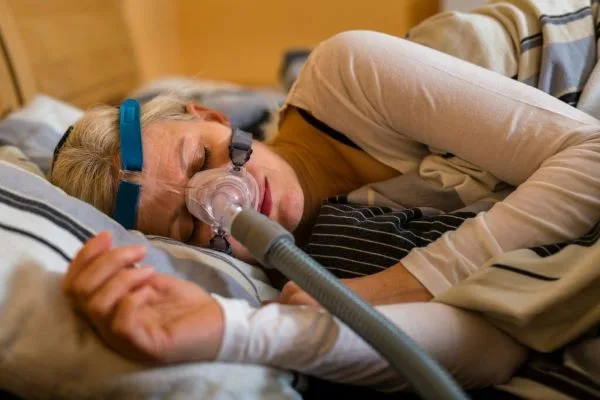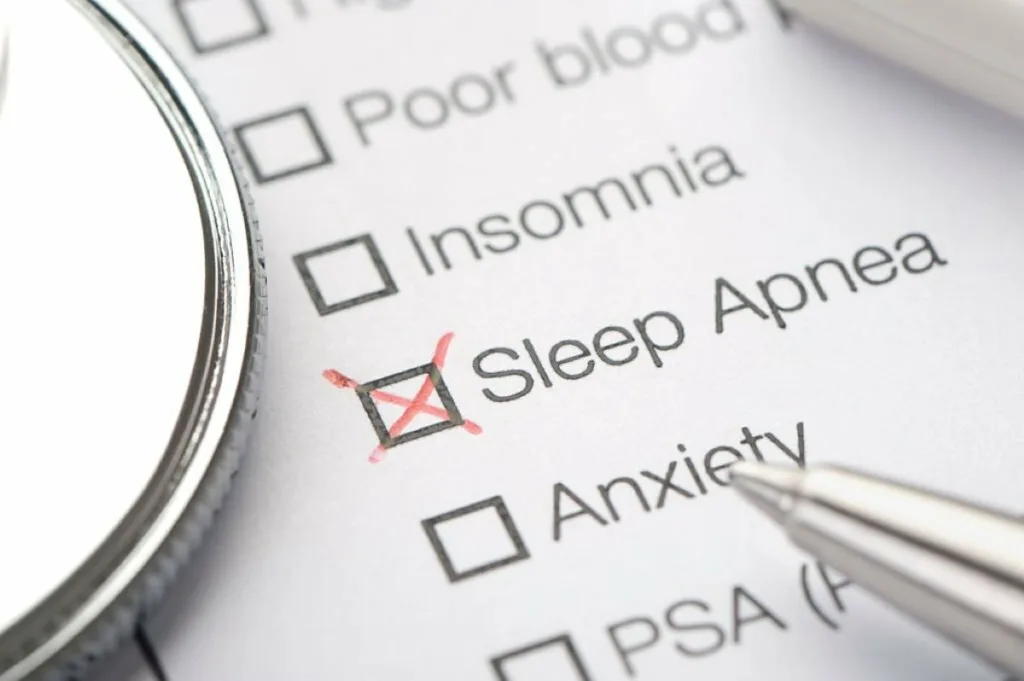Sleep apnea is a condition that affects millions of people worldwide. It’s characterized by pauses in breathing or periods of shallow breathing during sleep. These interruptions can lead to a host of health problems, including daytime fatigue, high blood pressure, and even heart disease.
While the definitive treatment for sleep apnea or sleep apnea diagnosis often involves medical interventions such as CPAP machines or surgery, many individuals look for supplementary aids to help alleviate their symptoms.
Understanding Supplements for Sleep Apnea
Before diving into the world of supplements, it’s essential to understand that while some supplements may help manage symptoms or improve sleep quality, they are not a cure for sleep apnea.
They should be considered as part of a comprehensive approach to managing the condition, which includes lifestyle changes, medical treatments, and, most importantly, a proper diagnosis.
Popular Supplements for Sleep Apnea
Magnesium: This mineral plays a crucial role in muscle function and can help relax the muscles in the upper airway. Some studies suggest magnesium supplementation might reduce sleep apnea symptoms in specific individuals.
Lavender: Known for its calming properties, lavender can help improve sleep quality. While it doesn’t directly treat sleep apnea, it can aid in achieving a deeper, more restful sleep.
Vitamin D: A deficiency in Vitamin D has been linked to sleep disorders, including sleep apnea. Ensuring adequate levels might help in managing the condition.
Can too much vitamin D cause erectile dysfunction?
Omega-3 Fatty Acids: These essential fats in fish oil have anti-inflammatory properties. Since inflammation can contribute to sleep apnea, omega-3s might offer some relief.
Valerian Root: Often used as a natural sedative, valerian root can help improve sleep quality. However, its direct impact on sleep apnea is still being researched.
Serotonin Precursors (like 5-HTP or Tryptophan): Serotonin plays a role in regulating sleep. Boosting its levels might help in managing sleep disorders, including sleep apnea.
5 HTP vs Ashwagandha: Which one is best for a sound sleep?
A Word of Caution
While the allure of a natural remedy is strong, it’s crucial to approach supplements cautiously. Not all supplements are safe for everyone; they can interact with medications or other treatments. Always consult with a healthcare professional before starting any new supplement regimen.

Transitioning to a Definitive Diagnosis
While supplements can offer some relief, they are merely a band-aid solution if the root cause of sleep apnea isn’t addressed.
If you or someone you know is experiencing symptoms of sleep apnea, such as loud snoring, choking or gasping during sleep, excessive daytime sleepiness, or morning headaches, it’s crucial to seek a definitive diagnosis.
Understanding the severity and type of sleep apnea you have is the first step towards effective treatment and improved health.
Recognizing the Symptoms of Sleep Apnea
Recognizing the signs of sleep apnea is the first step in identifying the condition. Some typical warning signs and symptoms are:
- Loud Snoring: Loud, persistent snoring is one of sleep apnea’s most apparent symptoms. It frequently comes with choking or gasping noises.
- Prolonged Daytime Sleepiness: Even after a whole night’s sleep, people with sleep apnea frequently suffer acute fatigue during the day.
- Headaches in the Morning: Frequent headaches may indicate sleep apnea due to altered sleep patterns.
- Trouble focusing: Sleep abnormalities brought on by sleep apnea can result in cognitive impairment, trouble focusing, and memory issues.
- Mood Changes: Sleep apnea may be associated with irritability, mood swings, and melancholy.
- Frequent Nighttime Waking: Sleep apnea sufferers may experience frequent, jarring awakenings.
- Frequent Urination: Nocturia, or the need to urinate often at night, is a sign of sleep apnea, particularly in elderly people.
Seeking Medical Evaluation
It’s critical to be checked out by a doctor if you or someone you know displays these symptoms. A trip to a doctor or sleep expert is typically the first step in diagnosing sleep apnea. In doing this assessment, the medical practitioner will:
- Take a Closer Look at the Past: Your sleep habits, symptoms, medical history, and any family history of sleep problems will all be discussed with the healthcare practitioner.
- Physical Examined: An inspection of the physical features, such as obesity, a sunken chin, or swollen tonsils, may indicate conditions that cause sleep apnea.
- Sleep Journal: Keeping a sleep journal will help you learn important details about your sleeping habits and everyday activities that can be causing your sleep apnea.
Home Sleep Testing
Your doctor may occasionally advise home sleep testing (HST) to identify sleep apnea. HST entails the wearing of portable monitoring equipment in the comfort of your own bed while you sleep.
These instruments assess vital indicators, including heart rate, oxygen levels, airflow, and breathing effort. Although they are often less thorough than in-lab polysomnography, they can be useful for identifying simple instances of OSA.

In-lab polysomnography (sleep study)
A polysomnography or in-lab sleep study may be advised for a more thorough assessment. This entails spending the night at a sleep facility where medical staff will track several elements of your sleep, such as:
- Brain Activity: Electroencephalogram (EEG) to monitor brain activity.
- Eye Movements: Electrooculogram (EOG) to track eye movements.
- Muscle Activity: Electromyogram (EMG) to record muscle activity.
- Breathing Patterns: Measurement of airflow, respiratory effort, and oxygen levels.
- Heart Activity: Electrocardiogram (ECG) to monitor heart rate and rhythm.
- Leg Movements: Leg movement sensors to detect restless leg syndrome or periodic limb movements.
When diagnosing various forms of sleep apnea diagnosis and other coexisting sleep disorders, polysomnography is especially helpful.
Central Sleep Apnea Diagnosis
Obstructive sleep apnea (OSA) is more frequent than central sleep apnea (CSA), which calls for distinct diagnostic techniques. A polysomnography can assist in separating the two.
Since underlying medical issues frequently accompany CSA, a comprehensive analysis of your health history and physical state is crucial.
Consulting a Sleep Specialist
A sleep expert must be consulted as soon as the diagnosis is certain. These medical specialists are skilled in treating sleep problems and can create a personalized treatment plan based on the seriousness of your disease and your individual requirements.
Changes in lifestyle, CPAP therapy, oral appliances, surgery, or medication are all potential forms of treatment.
Conclusion
The crucial first step to better sleep and better health in general is diagnosing sleep apnea. A correct diagnosis requires the recognition of the symptoms, obtaining medical attention, and undertaking the necessary diagnostic procedures.
People with sleep apnea can set a path to effective therapy and a restful night’s sleep with the help of medical experts and sleep specialists. Take action, be diagnosed with sleep apnea today, and sleep soundly again.

I am a health and wellness enthusiast working in a Pittsburgh-based wellness clinic. My primary role as a consultant is to tailor a balanced lifestyle for my patients, where positive steps and potent supplements play a synergistic role.

